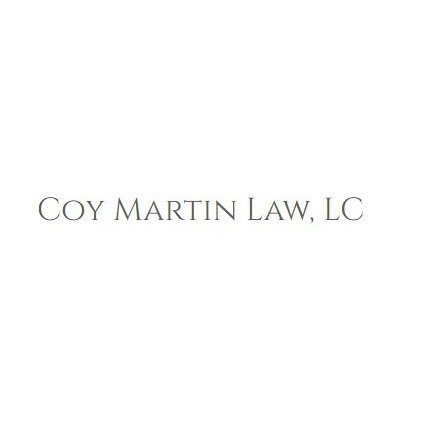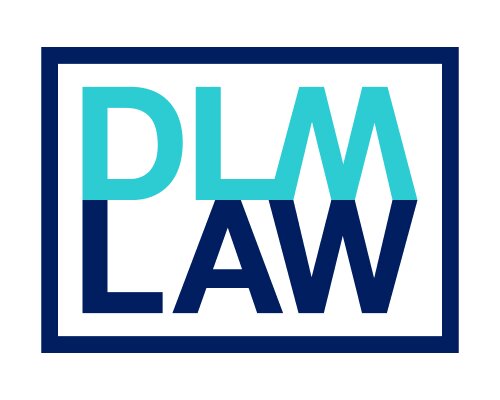Best Lawsuits & Disputes Lawyers in Kansas
Share your needs with us, get contacted by law firms.
Free. Takes 2 min.
Or refine your search by selecting a city:
List of the best lawyers in Kansas, United States
About Lawsuits & Disputes Law in Kansas, United States
Lawsuits and disputes law in Kansas refers to the rules and procedures used to resolve conflicts between individuals, businesses, or other entities through the legal system. These cases can include contract disputes, property disagreements, personal injury claims, employment issues, and more. Kansas follows its own set of statutes and legal procedures, supplemented by federal law when applicable. The primary goal is to resolve disagreements justly, whether through litigation, settlement, or alternative dispute resolution such as mediation or arbitration.
Why You May Need a Lawyer
Navigating lawsuits and disputes can be complex and stressful. You may need a lawyer in several common situations:
- You are being sued, or you need to initiate a lawsuit
- You are involved in a contract or business disagreement
- You suffer damages or injuries due to someone else’s negligence
- You face disputes over property or boundaries
- You encounter issues with employment or workplace rights
- You wish to negotiate or settle a legal matter out of court
- You need help understanding your rights and responsibilities under Kansas law
- You are struggling to collect a debt or are being pursued for payment
- You are involved in a family law matter such as divorce or child custody disputes
Having legal representation improves your chances of reaching a favorable outcome, ensures all documentation is handled correctly, and helps you avoid procedural mistakes that could harm your case.
Local Laws Overview
Kansas has its own laws that govern how lawsuits and disputes are handled in the state’s courts. Here are some key aspects:
- The Kansas Code of Civil Procedure details the steps and rules for filing and responding to lawsuits. It covers pleadings, motions, discovery, trial, and appeal processes.
- Statutes of limitations in Kansas may bar certain lawsuits if not filed within specific timeframes. For example, personal injury claims usually must be filed within two years of the incident.
- Most civil disputes are handled in district courts located throughout Kansas counties.
- Small claims courts are available for lower-value disputes, providing an expedited and less formal process for resolving minor disagreements.
- Kansas often encourages alternative dispute resolution, such as mediation, to help parties settle disputes without a trial.
- Punitive damages are available in Kansas but are capped and must meet specific legal criteria.
- Both individuals and businesses have the right to represent themselves, but legal counsel is highly recommended due to the procedural rules and possible consequences of litigation.
Frequently Asked Questions
What types of cases are classified as lawsuits and disputes in Kansas?
Lawsuits and disputes can include contract disagreements, personal injury claims, property disputes, employment issues, debt collection, business conflicts, insurance claims, and more.
What is the statute of limitations for filing a lawsuit in Kansas?
The deadline varies by case type. For personal injury, it is typically two years; for written contracts, up to five years; for property damage, two years. It is important to consult a lawyer for deadlines applicable to your specific matter.
Can I represent myself in a lawsuit in Kansas?
Yes, individuals may represent themselves, known as appearing pro se. However, legal procedures can be complicated, and not having a lawyer may put you at a disadvantage.
What is the small claims court limit in Kansas?
As of 2024, small claims courts in Kansas typically handle cases up to $4,000 in disputed value, excluding interest and court costs.
Do I have to try mediation before going to trial in Kansas?
In some cases, Kansas courts may require parties to attempt mediation or some form of alternative dispute resolution, especially in family or civil matters, in an effort to resolve disputes before resorting to trial.
How long does a civil lawsuit usually take in Kansas?
The timeframe varies based on complexity, court schedules, and whether the case settles early. Simple cases may resolve in a few months, while complex litigation can take several years.
What should I bring to my first meeting with a lawsuit and disputes lawyer?
Bring all relevant documents such as contracts, emails, letters, photographs, records of the dispute, and any court papers. A clear timeline of events is also helpful.
Can I recover attorney's fees if I win my lawsuit in Kansas?
Generally, each party pays their own attorney’s fees, unless a contract or Kansas law specifically allows the prevailing party to recover them. Some exceptions exist, so consult with an attorney about your case.
What is discovery in a Kansas lawsuit?
Discovery is the pretrial process where both sides exchange information and evidence relevant to the case. This can include interrogatories, depositions, and document requests.
Is it possible to settle my lawsuit out of court?
Yes, most civil cases settle before reaching trial through negotiation, mediation, or arbitration. Settling can save time, money, and uncertainty.
Additional Resources
If you need more information or want to handle legal matters yourself, the following organizations and agencies may be helpful:
- Kansas Judicial Branch - Provides forms, case information, and guidance about court procedures
- Kansas Bar Association - Lawyer referral services and educational materials
- Kansas Legal Services - Offers free or low-cost legal advice to eligible individuals
- Local County Courthouses - Source for court records and filings
- Kansas Attorney General’s Office - Handles consumer complaints and legal resources
- Alternative Dispute Resolution Centers - Information about mediation and arbitration services in your area
Next Steps
If you are facing a lawsuit or dispute in Kansas and need legal assistance:
- Gather all documents and information related to your case, including correspondence, contracts, and official papers.
- Consider writing a short summary of events to better inform your attorney or legal advisor.
- Contact the Kansas Bar Association or Kansas Legal Services for a referral to a qualified attorney if you do not already have one.
- Set up an initial consultation to discuss your case and get professional advice on your options.
- Follow your lawyer’s instructions and meet all court deadlines to protect your legal rights.
Taking these steps early can help you understand your rights, avoid common mistakes, and achieve the best possible outcome in your legal dispute.
Lawzana helps you find the best lawyers and law firms in Kansas through a curated and pre-screened list of qualified legal professionals. Our platform offers rankings and detailed profiles of attorneys and law firms, allowing you to compare based on practice areas, including Lawsuits & Disputes, experience, and client feedback.
Each profile includes a description of the firm's areas of practice, client reviews, team members and partners, year of establishment, spoken languages, office locations, contact information, social media presence, and any published articles or resources. Most firms on our platform speak English and are experienced in both local and international legal matters.
Get a quote from top-rated law firms in Kansas, United States — quickly, securely, and without unnecessary hassle.
Disclaimer:
The information provided on this page is for general informational purposes only and does not constitute legal advice. While we strive to ensure the accuracy and relevance of the content, legal information may change over time, and interpretations of the law can vary. You should always consult with a qualified legal professional for advice specific to your situation.
We disclaim all liability for actions taken or not taken based on the content of this page. If you believe any information is incorrect or outdated, please contact us, and we will review and update it where appropriate.
Browse lawsuits & disputes law firms by service in Kansas, United States
Kansas, United States Attorneys in related practice areas.
Browse lawsuits & disputes law firms by city in Kansas
Refine your search by selecting a city.















